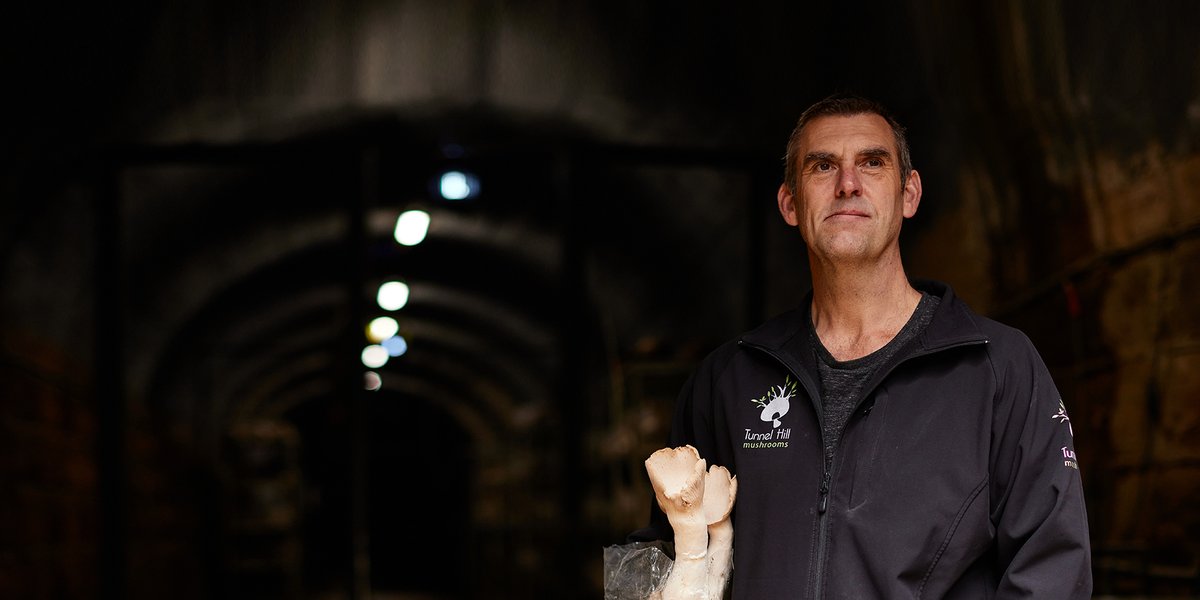Karin Luttmer
"It’s nice to know I make a really good product, with really good people, with good ingredients people love. I have to hold on to that specialness."
"I knew how to run the business and I knew it had great potential to grow. I had relationships with our customers. I thought: I love a challenge."
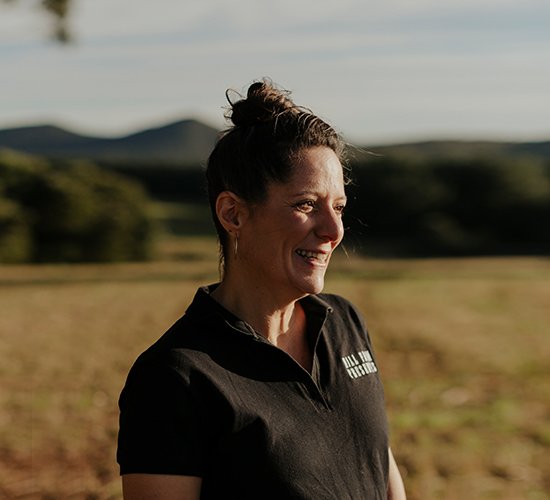
The kibbutz movement, in Israel, started in the early 20th Century with utopian ideals of working together on the land. Karin Luttmer grew up on a thriving kibbutz in Southern Israel.
“It was so lovely, with a big sense of community,” she says. “There were big open spaces, it was very green, a great place to grow up. We celebrated holidays together in a big dining room. The freedom, the possibility.”
It was so attractive that people from around the world came to be a part of it, working together and sharing the bounty. When you sign up to be a part of the kibbutz movement, it’s a lottery system run out of a central office. One of the people who won a ticket to Karin’s kibbutz was an Englishman whose parents had moved to Tasmania in the 1980s.
“They first arrived in Australia and drove from top to bottom, looking for the right place to live,” says Karin. “They decided Tasmania would be a good place. They started with a dairy farm and then moved into potato production.”
When Karin fell in love with this idealistic Englishman, he enticed to her to consider another green place with big open spaces, freedom and possibility: North West Tasmania.
Israel is not known for its quietness. “It’s very hustle-bustle, very loud,” she says. “I remember when I first got here in 2000 I felt a bit shell shocked. I met all these people who had never left Tasmania. I felt a bit isolated.”
It wasn’t easy to find a job in rural Tasmania, for either of them, so they moved to Melbourne and for four years they worked with a company that had connections to Israel. Then they had a baby, and everything changed.
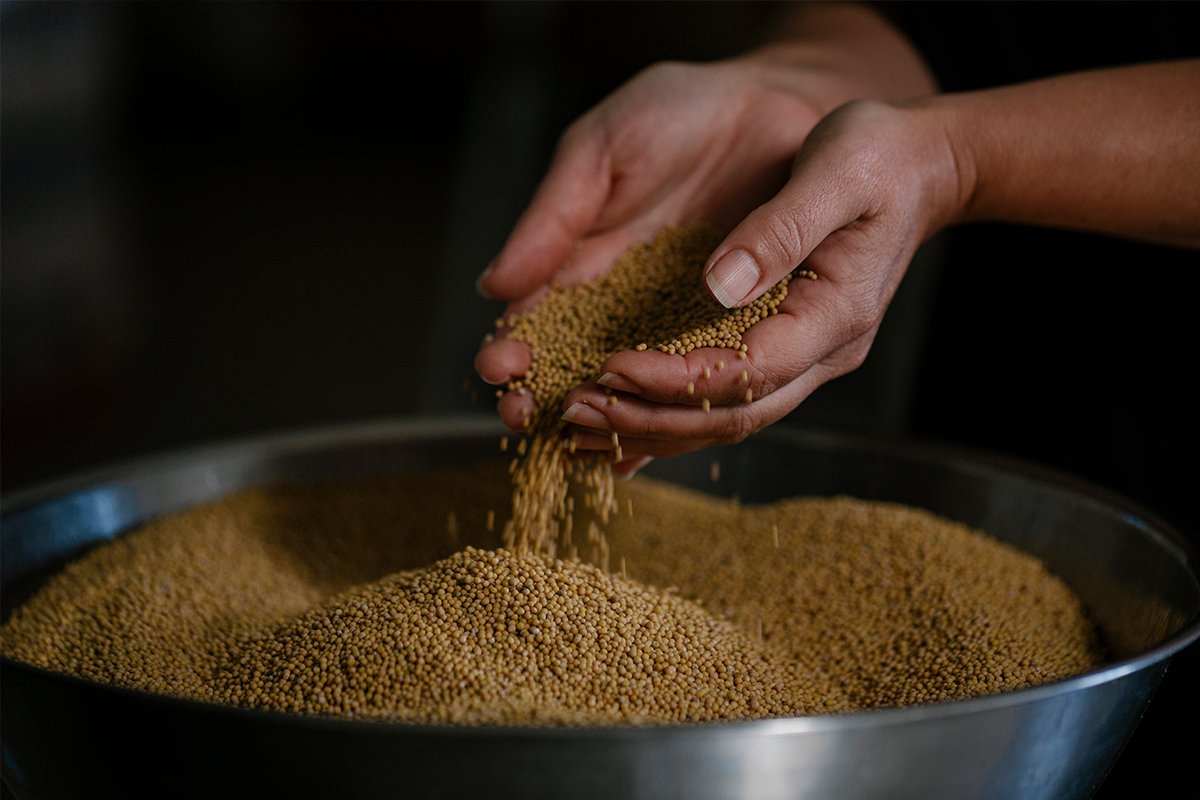
“I felt more confident with Australian culture,” she says. “And I was in a different time of life, with kids. I was not looking so much for social life, going out all the time. I have a beautiful family here. And I got used to the idea of what Tasmania is like: the beauty. Still, when my family comes to visit they say it’s so quiet. But things have changed for me. I just love it. It happened gradually, sneaked up on me. Now I wouldn’t live anywhere else.”
For a while Karin worked at being a mum on the North West Coast. When she wanted to get back into the workforce, she joined the production team at a small company in picturesque Sisters Creek, near her home, called Hill Farm Preserves.
She was attracted to the artisanal nature of the business: sweet and savoury preserves made with locally grown fruit and mustard seeds. There were no preservatives or anything else artificial like colours or flavours.
“I’m not a natural salesperson so I started in production,” she says. “When the production manager went on maternity leave, I took that position and held it for eight years, learning more and more about Hill Farm Preserves and its potential.”
Then, in 2016, when the owner was ready to sell Karin was ready to buy.
“I knew the business really well,” she says. “I knew how to run the business and I knew it had great potential to grow. I had relationships with our customers. I thought: I love a challenge. For a while I had wanted to do things differently but it wasn’t my business. Now it was, so I surrounded myself with people who can do things better than me. Once I have customers, I know I can keep them. Going out there and getting the customers? That’s not my strength.”
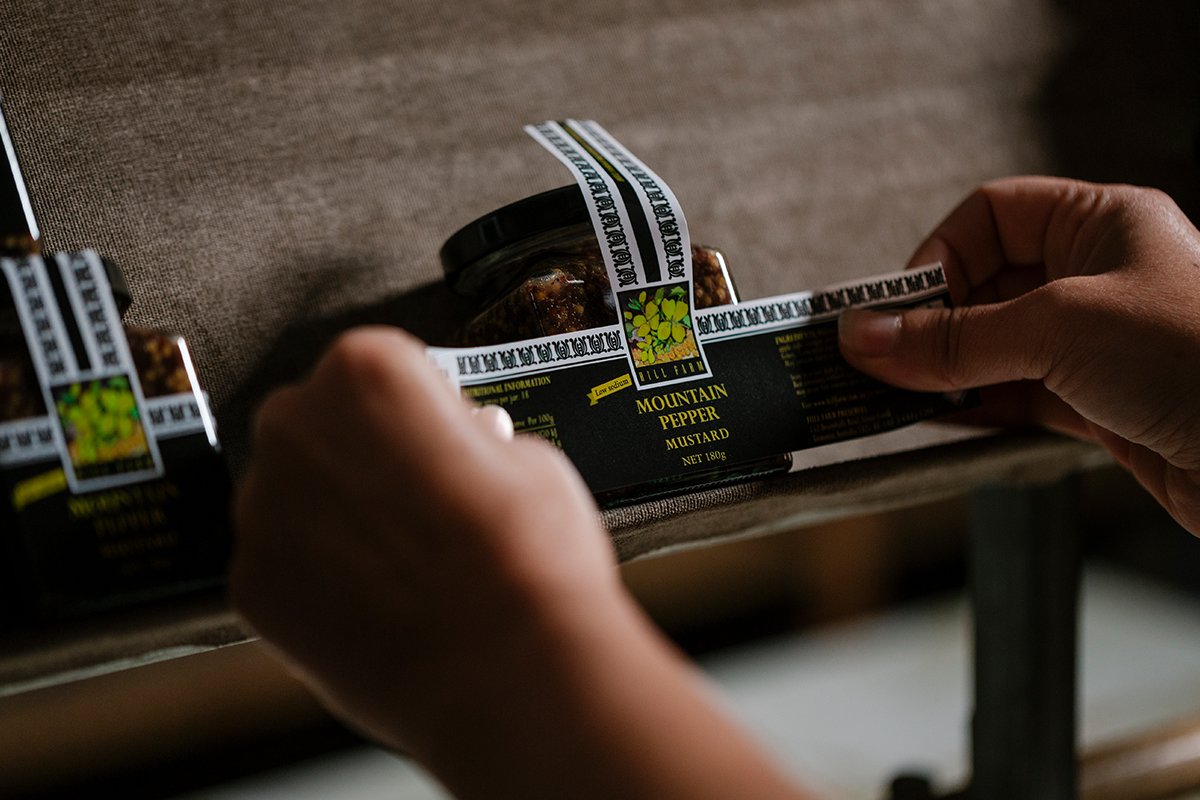
But Karin saw so much opportunity. She unified the look and feel of the jam, curry, jelly, and mustard jars and bottles, working with a local artist, Bronwyn Roberts-Thomson, who grows tulips nearby at Table Cape. “It’s always been a great product,” Karin says. “I wanted it to be as beautiful on the outside as inside, and Bronwyn made that possible.”
Karin worked with a team to tell the story of Hill Farm Preserves and to actively find new customers, especially in Japan, but also in Singapore and Sri Lanka.
“The Japanese especially love that hand-made, healthy, artisanal aspect,” she says. “It’s a big part of their culture too. And they’re buying the Tasmanian-ness. The mustard seed just comes from across the paddock. It’s so fresh. If we can source anything from Tasmania, we do. All the fruit: berries, apples, quinces. Yellow and black mustard seeds, horseradish, honey, onions, all Tasmanian. Why? It’s a much better product than you can get anywhere else. And it’s close, which is important because freight is so expensive.”
Karin is part of a team of 13 at Hill Farm Preserves, a business that moves with its customers’ needs. “For example, today was a super quiet day,” she says. “But just now I’ve received an order from Japan that will send us into a flurry.”
One of her favourites is the Moroccan mustard. “It’s one I created,” she says, “and it reminds me of home. My mum is Moroccan and she’s a great cook, and it has all of those spices in it from my childhood.”
Quiet days, mad days, they all end well for Karin. “It’s nice to know I make a really good product with really good people with good ingredients people love,” she says. “The reason our products are so beautiful is that they are made in small batches. There is demand, and we can make more of what we are making in the same way, but we have to be careful. I would not expand into a big, commercial company. I have to hold on to that specialness.”
Karin is featured in partnership with our friends at Trade Tasmania.

We worked with north west Tasmanian photographers Moon Cheese Studio and southern Tasmanian cinematographer Joshua Lamont ACS for this Tasmanian story.
You can find these images and more in our Tasmanian Partner Toolkit.
Read about more Tasmanians
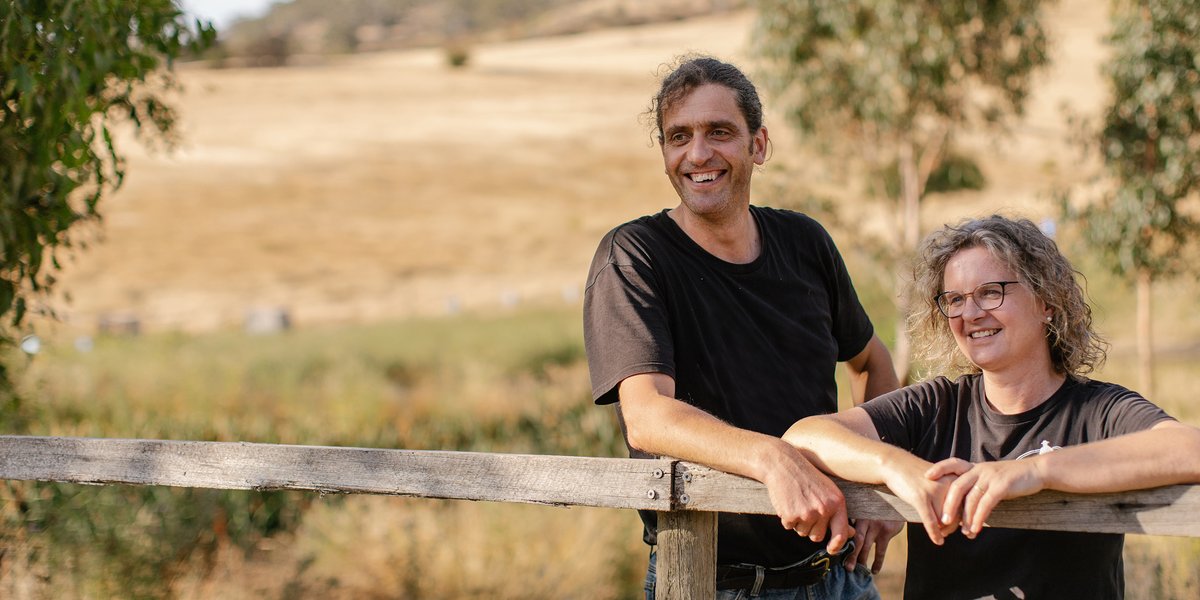
Ashley & Jane Huntington
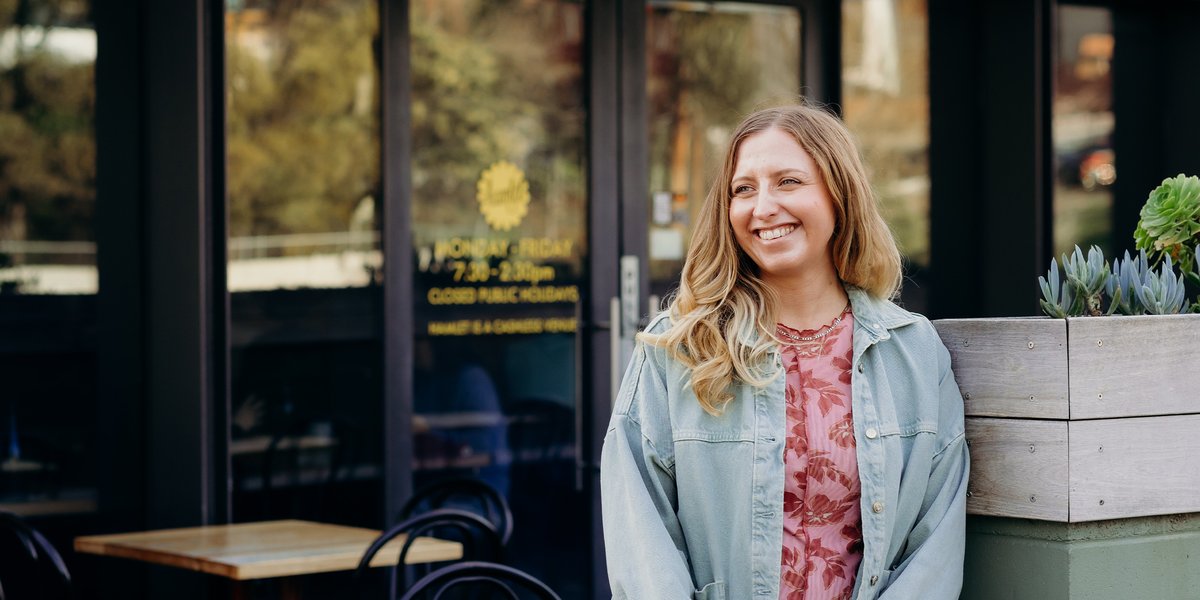
Emily Briffa
